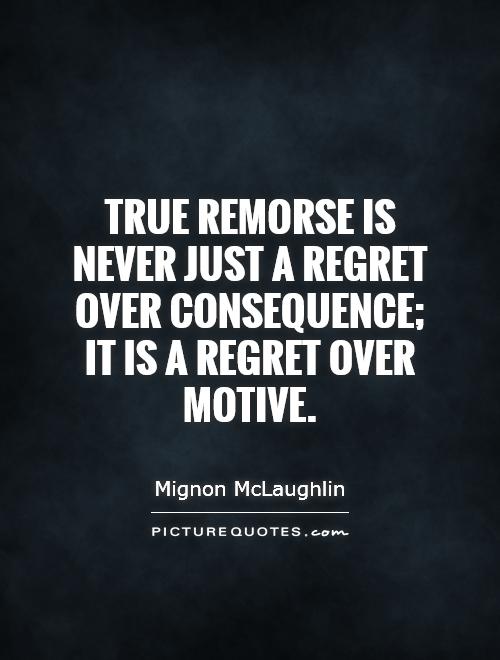True remorse is never just a regret over consequence; it is a regret over motive

True remorse is never just a regret over consequence; it is a regret over motive
Mignon McLaughlin, an American journalist and author, once said, “True remorse is never just a regret over consequence; it is a regret over motive.” This powerful statement delves deep into the complexities of human emotions and the nature of regret. It suggests that true remorse goes beyond simply feeling sorry for the outcome of our actions; it involves a deep reflection on the intentions behind those actions.Regretting the consequences of our actions is a common human experience. We often feel remorse when our choices lead to negative outcomes for ourselves or others. However, McLaughlin’s statement challenges us to look beyond the surface level of regret and consider the underlying motives that drove our behavior. It forces us to confront the uncomfortable truth that our actions may have been fueled by selfishness, greed, or malice.
When we feel remorse over our motives, we are acknowledging that our actions were not driven by good intentions. We are forced to confront the darker aspects of our own nature and come to terms with the fact that we may have hurt others intentionally. This type of remorse is much more profound and transformative than simply regretting the consequences of our actions. It requires us to take responsibility for our behavior and make amends for the harm we have caused.












 Friendship Quotes
Friendship Quotes Love Quotes
Love Quotes Life Quotes
Life Quotes Funny Quotes
Funny Quotes Motivational Quotes
Motivational Quotes Inspirational Quotes
Inspirational Quotes